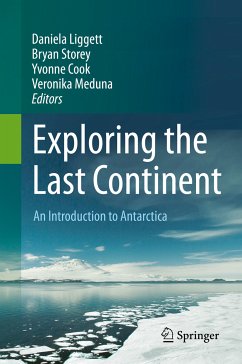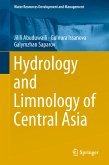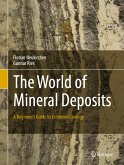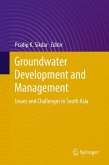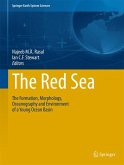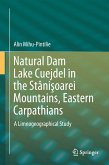The first part of the book discusses Antarctica's physical systems over time - the continent's geological evolution, its climate, weather and atmosphere, and its distinctive oceanographic, hydrographic and glaciological features. This section includes chapters on Antarctica's geological history; its cryosphere and hydrological systems; and the Antarctic atmosphere, including the role Antarctica plays in the global atmospheric system.
The second part of the volume surveys Antarctica's marine and terrestrial ecosystems. Among the chapter topics in this section are biological diversity of the Subantarctic Islands; aquatic and non-aquatic terrestrial ecosystems; marine ecosystems of the Southern Ocean, birds and mammals, invertebrates and fish of Antarctica.
The third part is devoted to the history of human endeavors in Antarctica and the politics behind human activities in the Southern Ocean and on the continent. The contributors delve into historical and social aspects of Antarctic exploration; the governance approach which sets the continent aside for peace and science; tourism; psychological aspects of human endeavours on the Ice; and Antarctic arts.
The final part of the book weaves together insights in the physical, social and human sciences to illuminate a discussion of current issues, such as climate change, bio-prospecting, science collaboration, and environmental management. Individual chapters discuss the exploitation of marine living resources; biological prospecting; geological resources; renewable energy; regulatory challenges of commercial exploitation; the causes and impacts of climate change in
Antarctica; and the role of the Scientific Committee on Antarctic Research (SCAR).
Dieser Download kann aus rechtlichen Gründen nur mit Rechnungsadresse in A, B, BG, CY, CZ, D, DK, EW, E, FIN, F, GR, HR, H, IRL, I, LT, L, LR, M, NL, PL, P, R, S, SLO, SK ausgeliefert werden.
"This book provides an introduction to the exploration of Antarctica ... . The volume includes a short introduction followed by four sections of articles arranged thematically. ... Broad and thoughtful inits approach, this work is a valuable addition to the expanding canon of analyses of the history and future of Antarctica. Summing Up: Recommended. Upper-division undergraduates through professionals/practitioners; general readers." (H. Doss, Choice, Vol. 53 (9), May, 2016)

